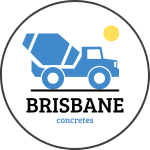Driveway Concreters in Brisbane
Built Right, Built Strong — Concrete Experts Just a Quote Away!
Driveway Concreters
If you’re searching for driveway concreters in Brisbane, you’re in the right place. A driveway is more than just a path to your home or business — it’s the first impression visitors see and a key part of your property’s value. Whether you’re after a new concrete driveway, driveway repairs, resurfacing, or a decorative finish like exposed aggregate or stamped concrete, our concreting team can deliver a smooth, durable surface that’s built to last.
We provide end-to-end driveway concreting services across Brisbane, from planning and preparation to finishing and sealing, ensuring a result that not only looks fantastic but also withstands Brisbane’s climate.
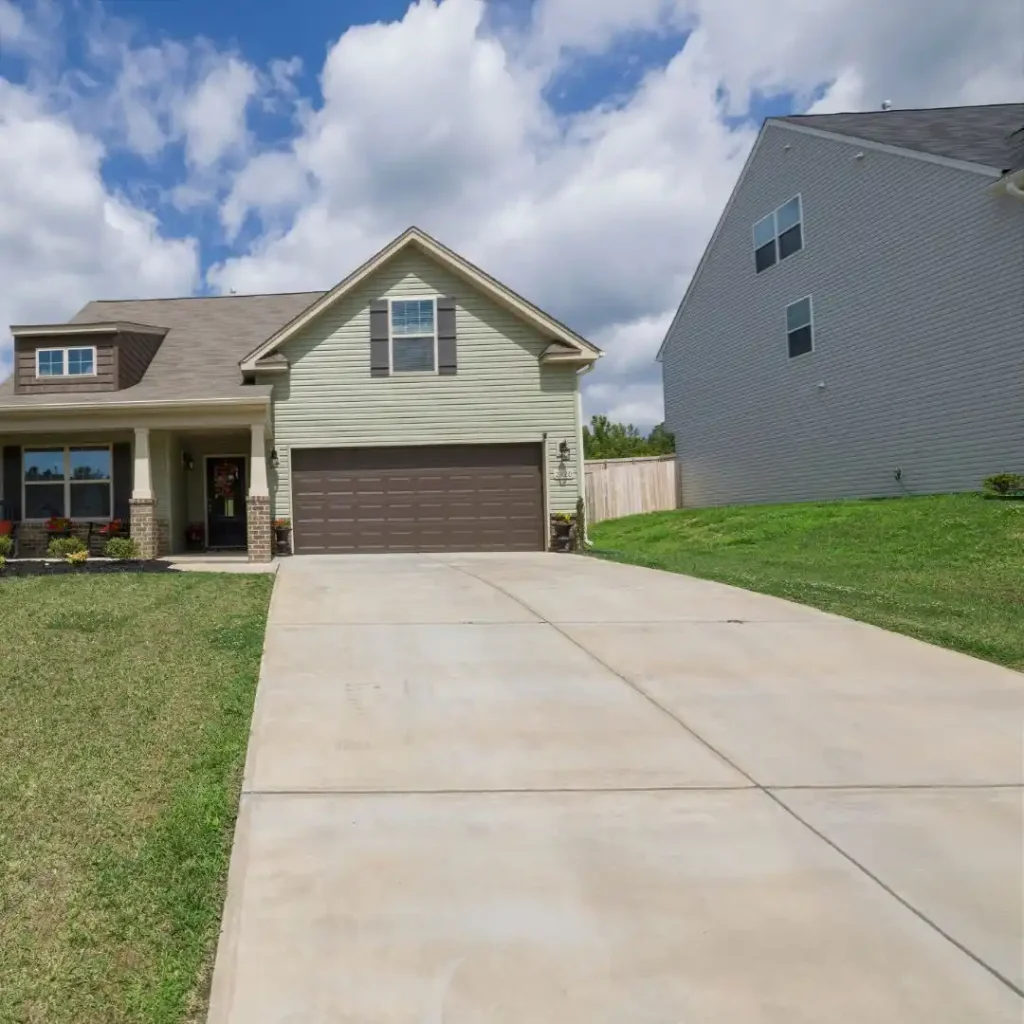
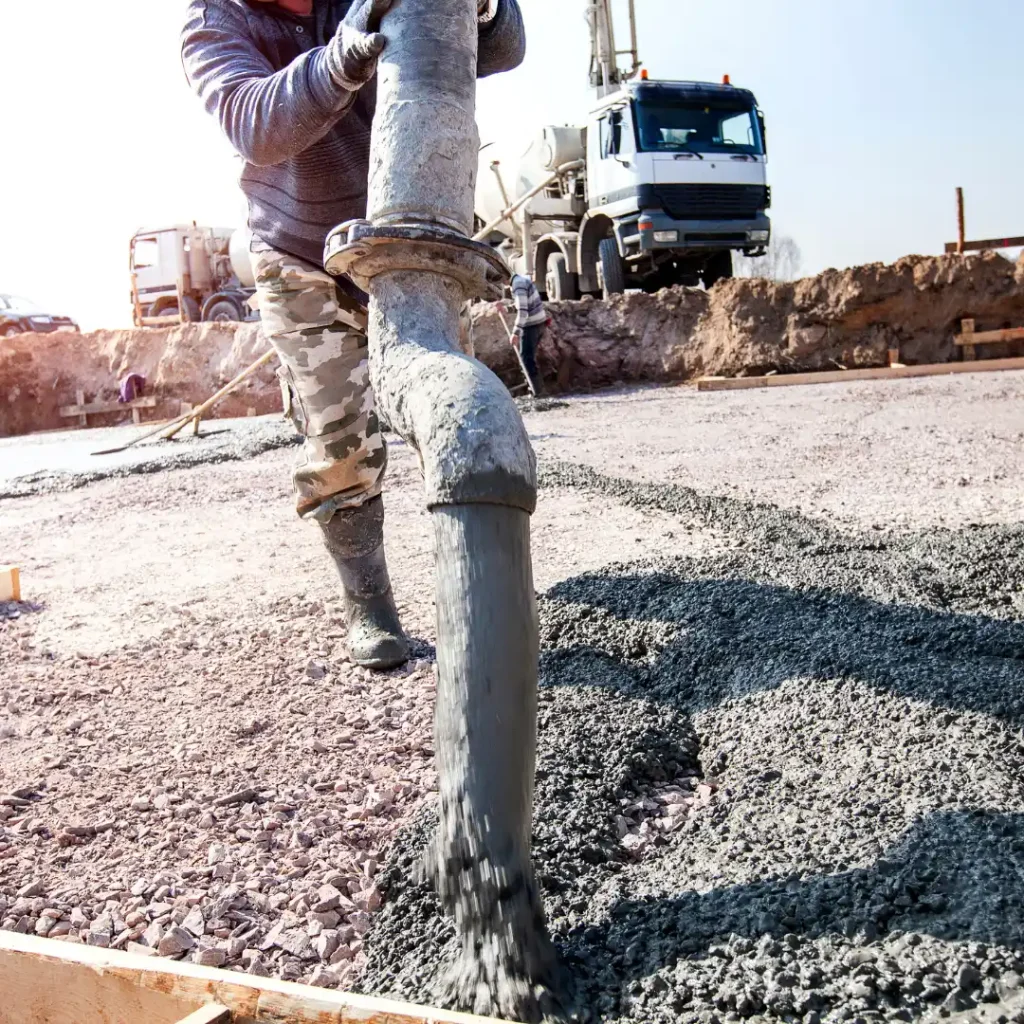
Why Choose a Concrete Driveway in Brisbane?
Concrete remains one of the most popular driveway materials for good reason:
Durability – Properly installed concrete driveways can last for decades with minimal maintenance.
Versatility – Choose from plain concrete, exposed aggregate, stamped patterns, or stencilled finishes to suit your property’s style.
Low Maintenance – Unlike gravel or pavers, a concrete driveway requires less upkeep.
Cost-Effective – Long lifespan means better value over time compared to many alternatives.
From driveway installation to driveway resurfacing Brisbane-wide, our concreters can create a driveway tailored to your needs.
Our Driveway Concreting Services in Brisbane

New Concrete Driveway Installation
Perfect for new builds or replacing old surfaces, we offer full driveway installation with precision preparation, formwork, pouring, and finishing. Whether you want a modern, smooth finish or a textured, decorative look, we’ll deliver a driveway that fits your property and lifestyle.
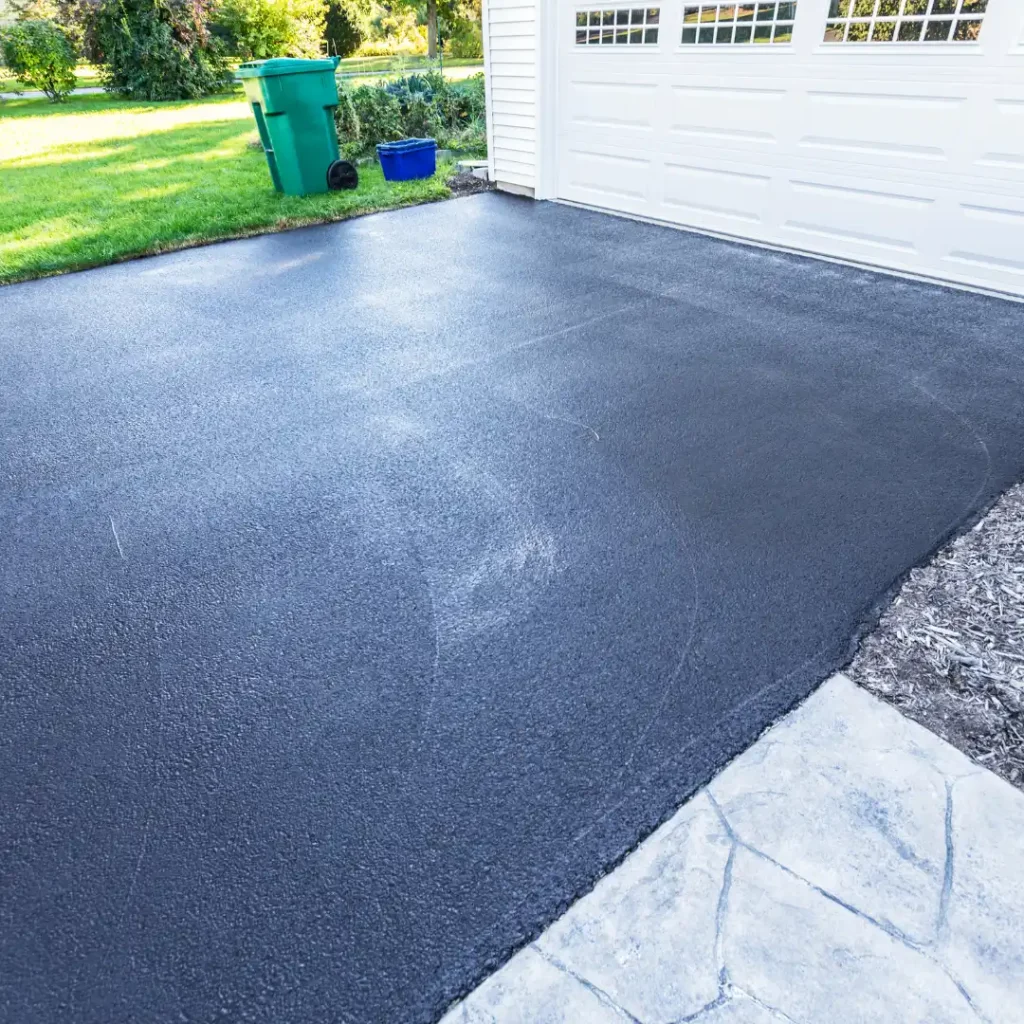
Exposed Aggregate Driveways
An excellent choice for a stylish, slip-resistant surface. Exposed aggregate concrete is durable and available in a wide range of colours and stone mixes, making it ideal for high-traffic areas and Brisbane’s weather conditions.
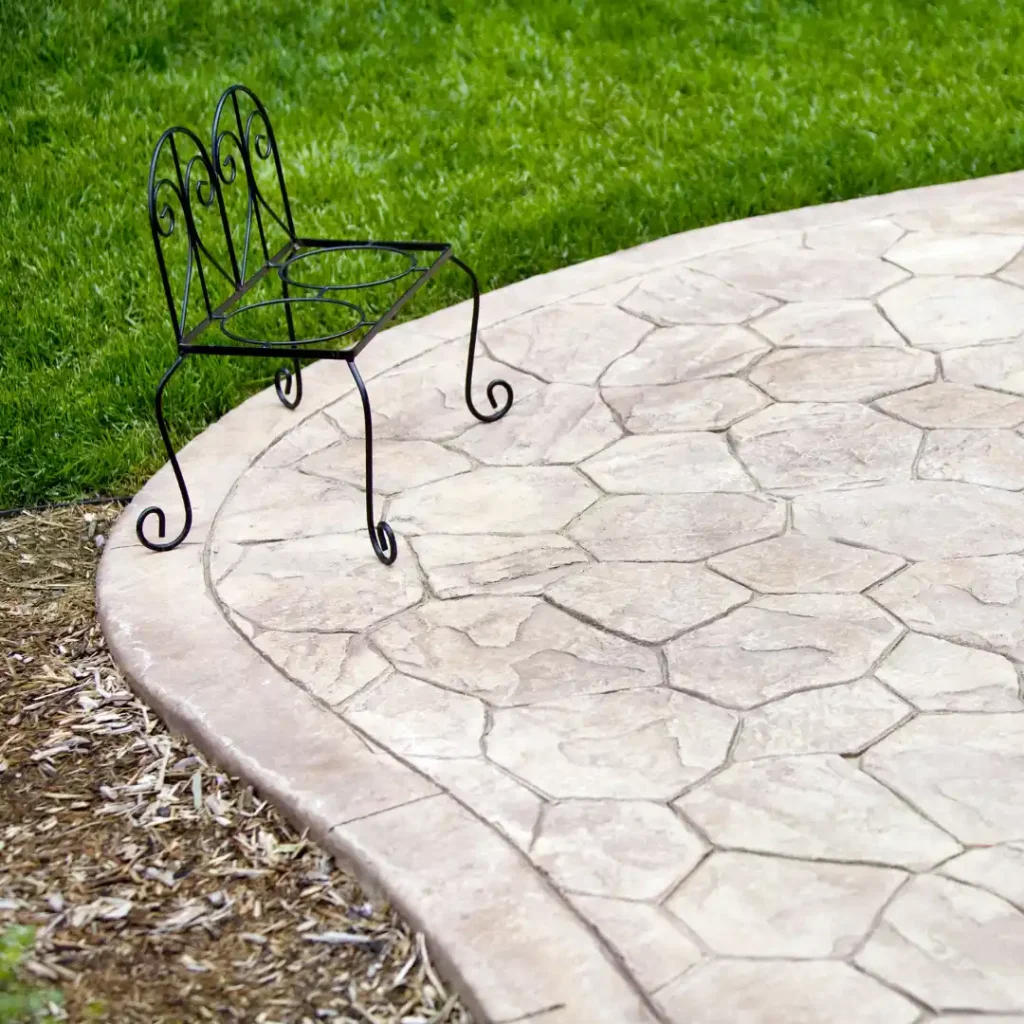
Stamped & Stencilled Concrete Driveways
Get the look of natural stone, brick, or pavers without the high cost. Stamped concrete and stencil concrete create decorative patterns and textures while maintaining the strength and longevity of a standard concrete driveway.
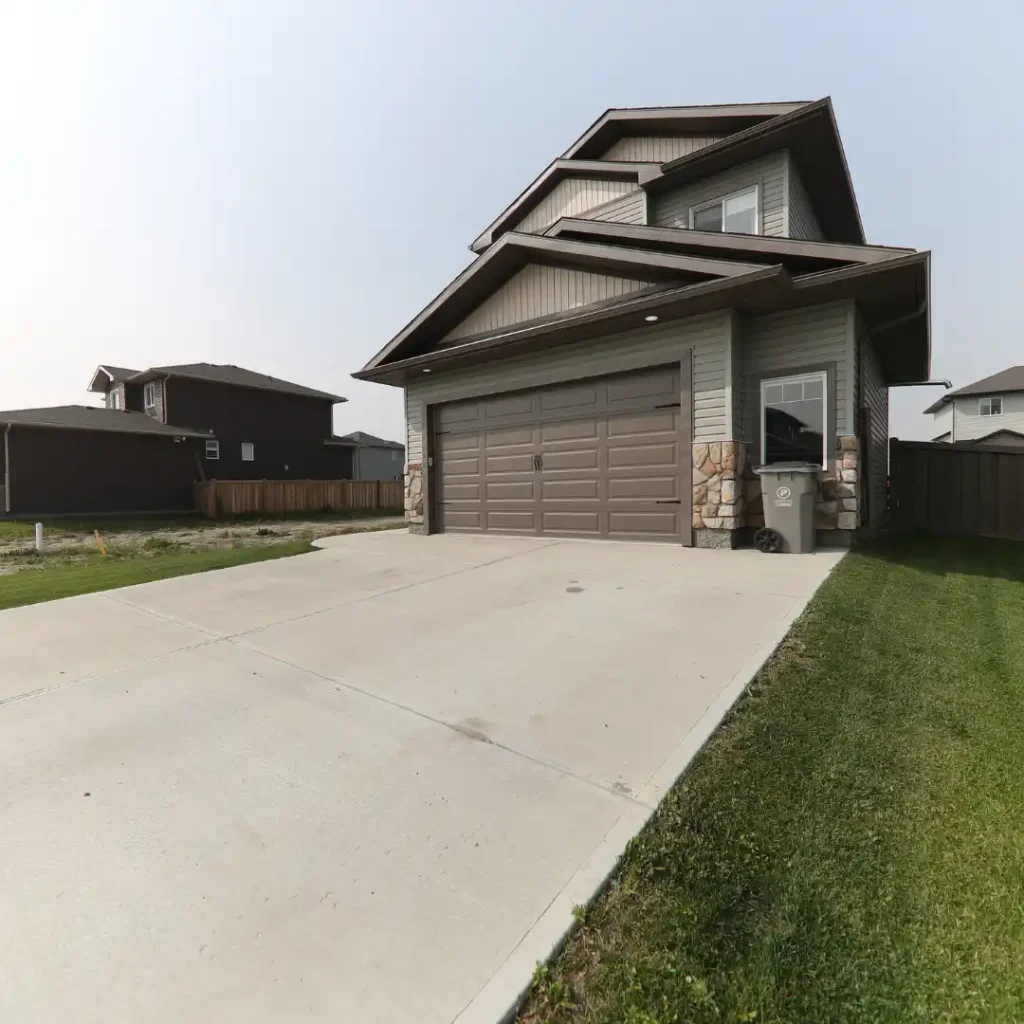
Driveway Repairs & Crack Fixing
Over time, driveways can develop cracks or surface wear. We offer driveway repairs in Brisbane to fix cracks, level uneven areas, and restore structural integrity, preventing further damage.
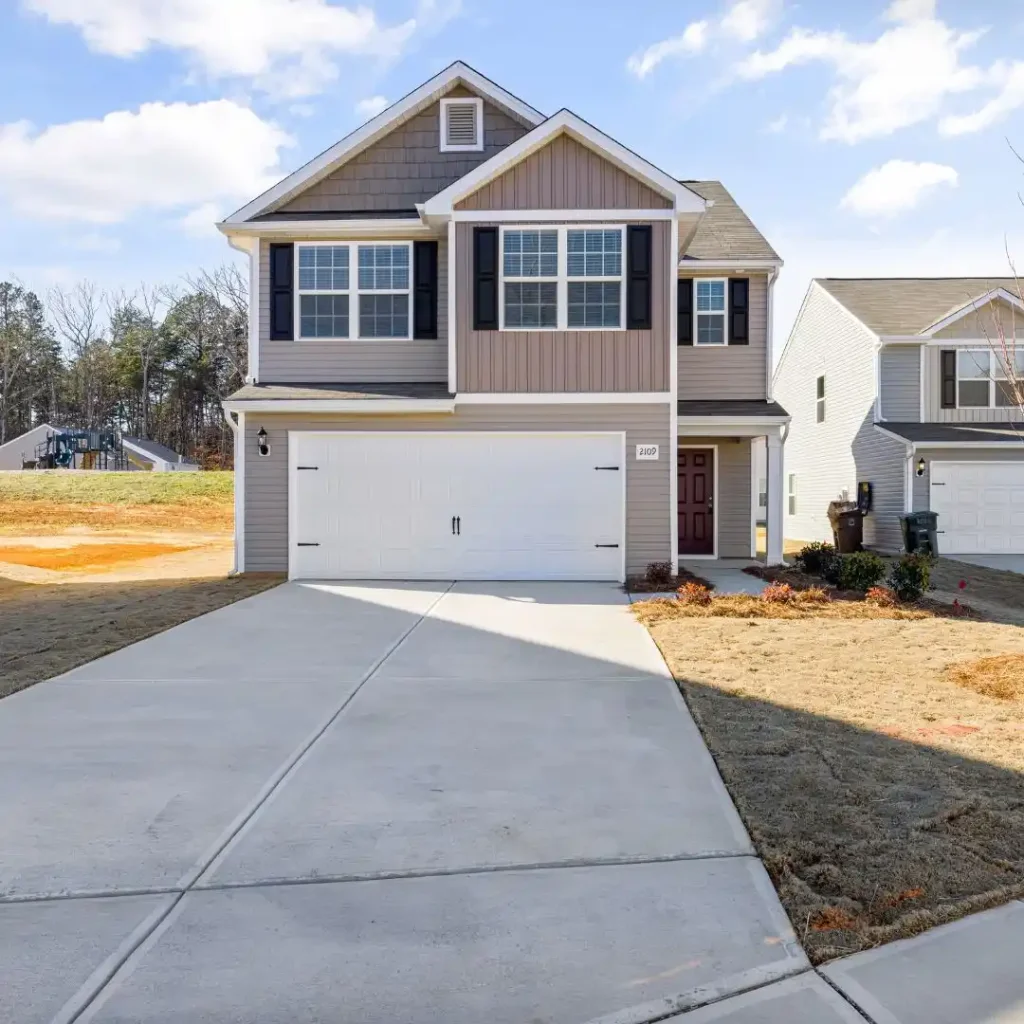
Driveway Resurfacing & Refinishing
If your driveway is structurally sound but looks worn, concrete driveway resurfacing is a cost-effective way to restore its appearance. We apply a fresh surface layer that can be plain, coloured, or patterned, giving your driveway a brand-new look.
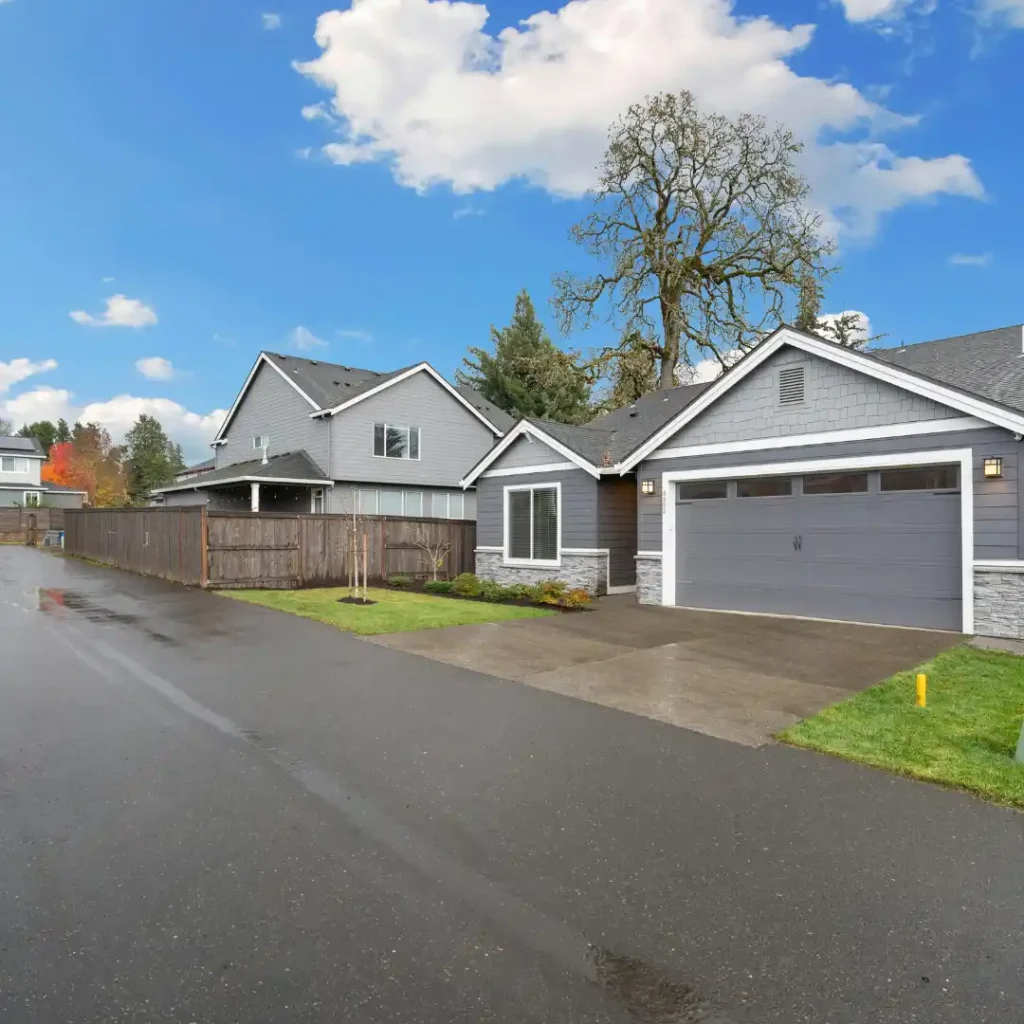
Concrete Driveway Sealing
Driveway sealing protects your concrete from stains, weather damage, and cracking. We recommend sealing every few years to maintain appearance and durability, especially in Brisbane’s changing weather.
Request A Quote
Fill out the form and we’ll get back to you shortly!
Service Areas
We provide driveway concreting services across Brisbane, including:
Brisbane CBD
North Brisbane suburbs
South Brisbane suburbs
East & West Brisbane
Surrounding areas within Greater Brisbane
Get Your Concrete Driveway Quote Today
A well-designed driveway is an investment that improves your property’s curb appeal, functionality, and value. Whether you need a new concrete driveway, a driveway resurfacing in Brisbane, or exposed aggregate driveway installation, we’re ready to help.
Request a completely free quote at Brisbane Concretes to get started on your new driveway project.
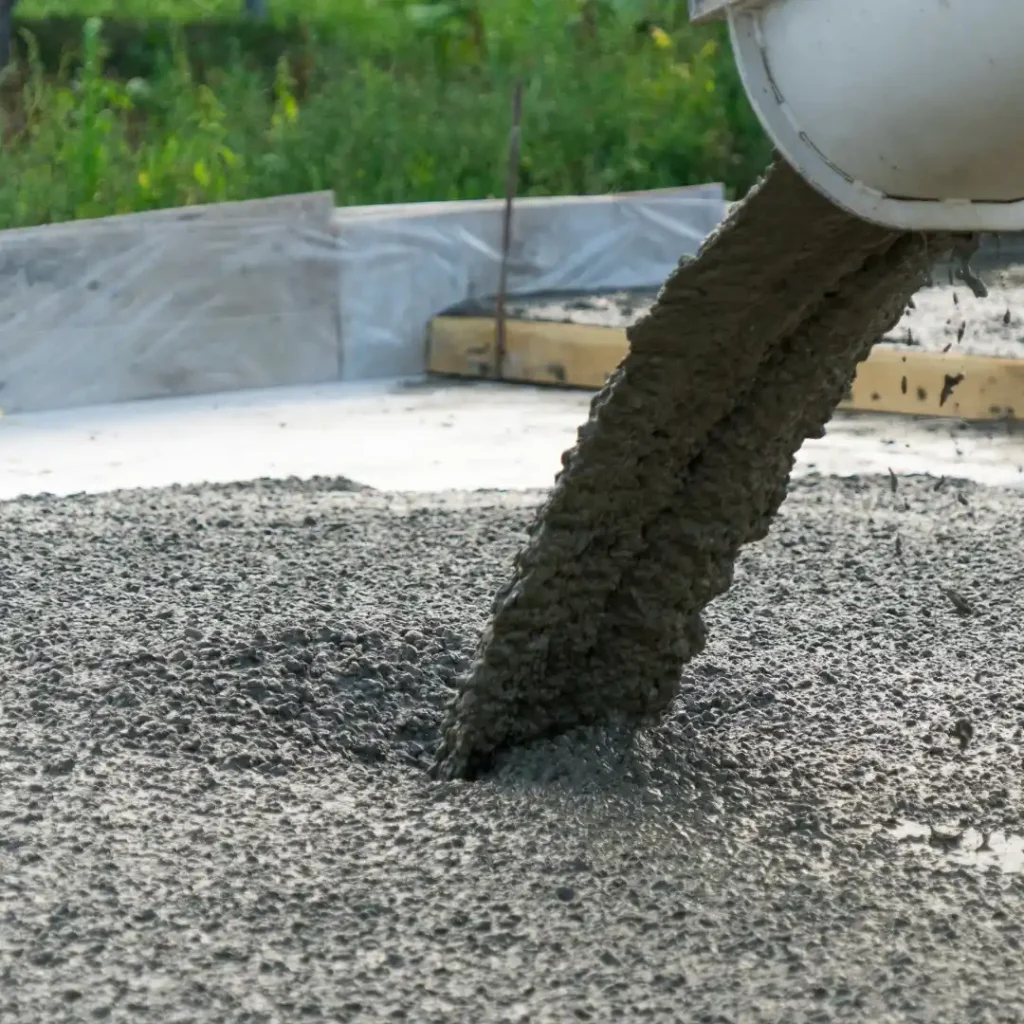
Driveway Installation Process – Step by Step
When you hire us for a concrete driveway project in Brisbane, here’s what you can expect::
Site Assessment & Quote – We inspect the area, discuss your needs, and provide a detailed driveway concreting quote.
Excavation & Base Preparation – Remove old materials and prepare a solid foundation for the concrete.
Formwork & Reinforcement – Install edge formwork and steel reinforcement to prevent cracking.
Concrete Pouring – Mix and pour concrete to the correct depth for maximum strength.
Finishing & Texturing – Smooth, texture, or stamp the surface according to your design choice.
Curing & Sealing – Allow the concrete to cure for optimal strength, then apply protective sealing if required.
Driveway Design Options for Brisbane Homes & Businesses
We understand that every property is unique, so we offer a variety of driveway designs and finishes, including:
Plain concrete – Simple, clean, and cost-effective.
Coloured concrete – Custom colour pigments for a modern look.
Exposed aggregate – Stylish and slip-resistant.
Stencil patterns – Brick, tile, or stone designs.
Stamped textures – Natural stone or timber look.
Our concreters can help you choose a driveway style that complements your property and matches your budget.
Driveway Repairs & Maintenance Services
Even the strongest concrete driveways benefit from occasional maintenance. We provide:
Crack repairs to prevent water ingress and further damage.
Surface patching to restore appearance.
Driveway resealing to extend lifespan.
Driveway resurfacing Brisbane-wide for a completely refreshed look.
Whether it’s repairing cracks in concrete driveways or fixing uneven sections, our goal is to make your driveway safe, attractive, and long-lasting.
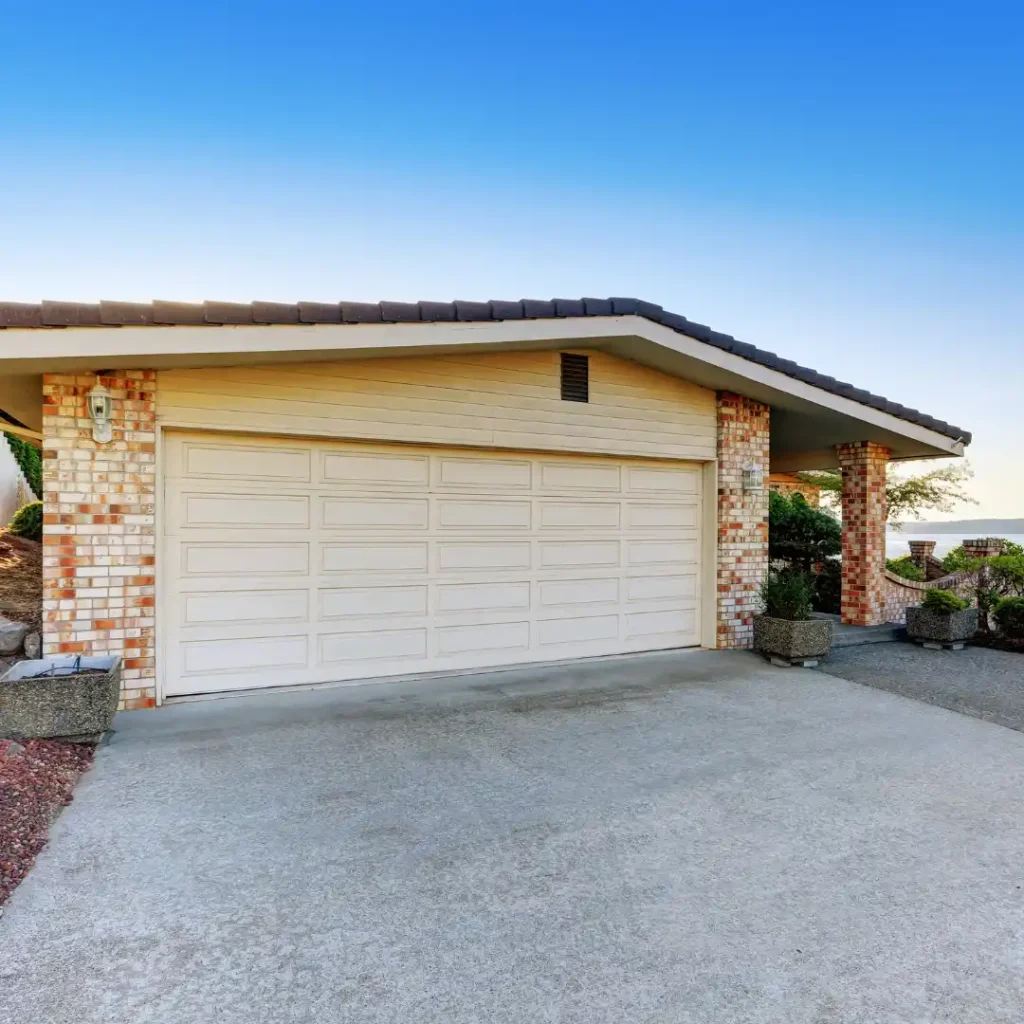

Choosing the Right Driveway Concreters Brisbane — what to check before you hire
Driveway Concreters Brisbane: start by narrowing options using practical, verifiable criteria so you get a durable driveway rather than a short-term fix. The first sentence you should read in any quote is whether the concreters clearly explain what they will build and how — not marketing fluff.
Key items to check and ask for:
Scope written down — exact square metres, expected thickness (mm), finish type (plain, exposed aggregate, stamped), joint locations, reinforcement details, drainage provisions, and whether sealing is included.
Portfolio & recent examples — ask to see recent photos of the exact finish you want (exposed aggregate, stamped, coloured). Photos reveal consistency and whether details like joints and edges were handled correctly.
Materials and mix details — a good concreter will state concrete grade (e.g., strength in MPa), aggregate type, and whether steel mesh or rebar is used for your expected loads.
Preparation & base — look for clear specs on excavation depth, compacted sub-base material (road base or crushed rock), and compaction method; a weak base causes most long-term failures.
Jointing & cracking plan — ask where control joints will be cut, and how much spacing will be used. Proper jointing limits random cracking.
Timeline & curing — understand the expected pouring day, curing method, and when vehicles can safely use the driveway.
Red flags: vague quotes, off-the-cuff guarantees, no written details about base preparation, and unrealistic short cure times.
What good concreters explain plainly: why a certain thickness (100mm vs 125mm) is chosen, how traffic load influences reinforcement, and what post-pour care is needed. That transparency helps you compare apples to apples between bids.
Driveway Concreters Brisbane — materials, mixes and finishes explained in depth
Driveway Concreters Brisbane should be able to explain concrete composition and finish performance so you make an informed design choice.
Concrete basics and what concreters should specify:
Concrete grade — strength specification matters (measured in MPa). Higher strength improves resistance to cracking under load.
Aggregate selection — the size and type of aggregate affect texture, finish, and the success of exposed aggregate surfaces. Local stone mixes produce different looks and grip.
Water/cement ratio & slump — too wet a mix increases shrinkage cracks; too dry makes finishing hard. Professionals control slump to suit the finish type.
Reinforcement — steel mesh or rebar reduces structural cracking. For heavier loads (boats, trailers), thicker slabs and heavier reinforcement are required.
Control joints vs movement joints — planned cuts relieve stresses. Proper spacing and depth are essential; expect joint layout based on slab dimensions.
Finishes:
Plain broom finish — simple texture for grip.
Exposed aggregate — surface stones revealed; excellent slip resistance and decorative variety.
Stamped/stencilled concrete — patterns pressed into the surface to mimic stone or tile. Requires careful curing and colour control.
Coloured concrete or stains — pigments integrated into the mix or applied as surface stains; UV-resistant sealers recommended for Brisbane sun.
Overlays & resurfacing mixes — for resurfacing, use polymer-modified overlays bonded correctly to a prepared substrate to avoid delamination.
Sealants & protective treatments — sealing reduces staining, salt and oil penetration, and slows UV fade on coloured finishes.
A concreter who explains these items and documents the chosen materials will give you a reliable, long-lasting result rather than an aesthetic-only surface.

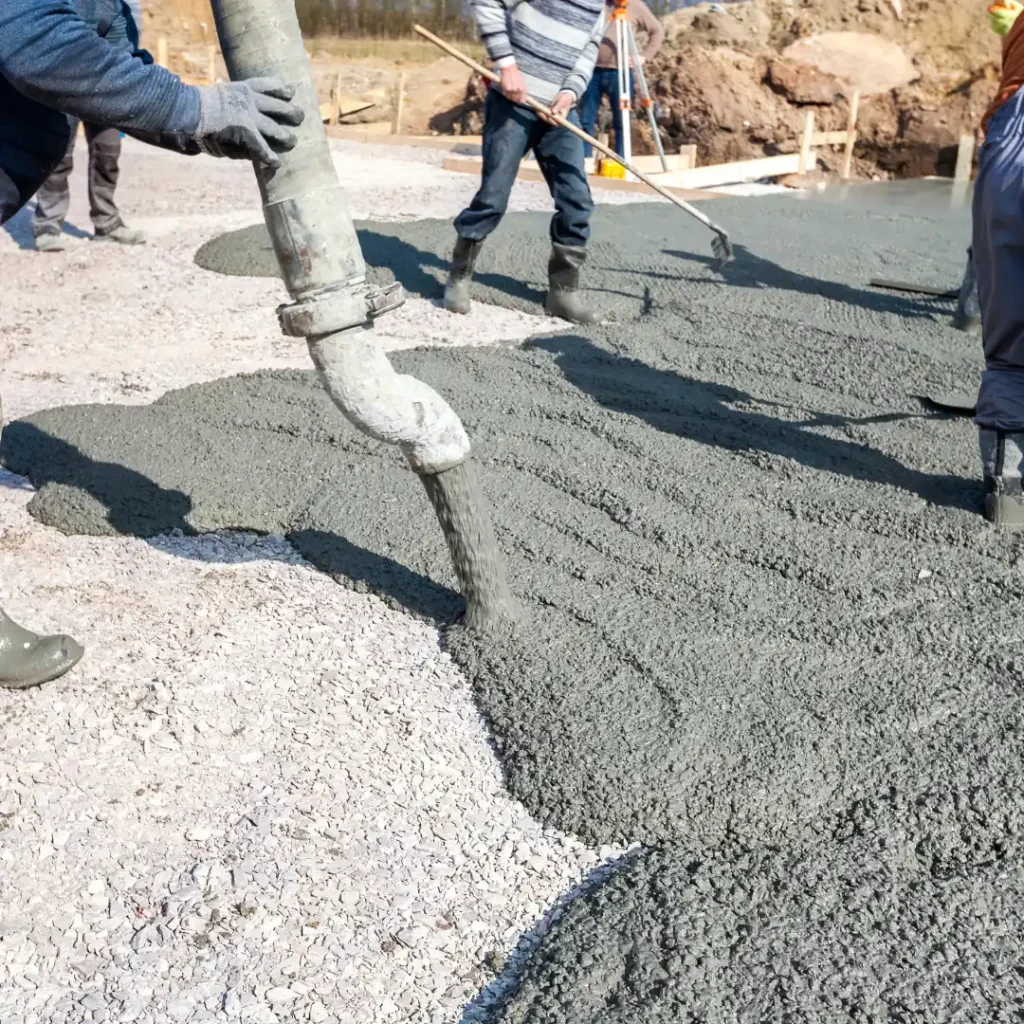
Driveway Concreters Brisbane — how quotes should be built and how to compare them
Driveway Concreters Brisbane quotes should be transparent, breaking down each cost element rather than giving a single lump figure. A good breakdown helps identify where you can save cost without sacrificing longevity.
Typical cost components to look for in quotes:
Site preparation — clearing, root removal, existing driveway demolition, excavation depth. Hidden or underpriced excavation often becomes expensive mid-job.
Sub-base material & compaction — road-base supply and compaction labour; this is not optional if you want a stable slab.
Formwork — edge forms and temporary supports to achieve square, aligned edges.
Concrete supply — volume in cubic metres, grade, and delivery fees for ready-mix trucks. Note whether the quote includes the waste for overpour and ramp up.
Reinforcement — mesh, rebar, and spacers.
Finishing & texture — cost differences between broom finish, exposed aggregate, stamped/concrete stencil, or coloured finishes.
Jointing, sealant, and curing treatments — whether saw-cut joints are included and sealing is applied.
Waste removal — disposal of old concrete and site cleanup.
Permits & inspections — if council approval or drive-way crossover work is required, who manages it and what’s included.
Day-rate labour vs fixed price — a transparent quote should specify if labour is fixed or charged by the day.
How to compare bids:
Align scope: make sure each quote covers the same size, thickness, base specs, and finish.
Ask about exclusions: e.g., “Does this price include sealing?” or “Are saw cuts included?”
Check scheduling: longer timelines can cost more but often indicate careful preparation and curing.
Value over lowest price: the cheapest quote may omit crucial base work or use a weaker mix. Look for clarity and specifics.
If the concreters provide a clear, itemised quote and explain each line, you’ll avoid nasty surprises and make an informed decision.
Driveway Concreters Brisbane — common problems, how to prevent them, and repair vs replace guidance
Driveway Concreters Brisbane commonly encounter the same recurring issues — understanding their cause helps you decide whether to repair, resurface, or replace.
Common problems and prevention:
Shrinkage and hairline cracks — caused by rapid drying or too high water content. Prevention: proper mix, curing, and timely control joints.
Structural cracking/settlement — often a weak sub-base or voids under the slab. Prevention: correct excavation, compacted road base, and consistent slab thickness.
Spalling and flaking — often due to freeze-thaw or de-icing chemicals (less common in Brisbane) or repeated oil spill damage. Prevention: sealing and avoiding harsh chemicals.
Delamination of overlays — happens when resurfacing is done over an unprepared or contaminated surface. Prevention: proper profiling, bonding agents, and correct polymer mixes.
Staining and efflorescence — surface salts and contaminants show as white powder or dark patches. Prevention: cleaning, proper drainage, and sealing.
Repair vs resurface vs replace — quick guide:
Small hairline cracks or surface stains — can often be repaired with crack fillers and resealing.
Multiple wide cracks, spalling or uneven settlement — resurfacing may restore appearance but only if sub-base and structural integrity are sound.
Large structural failure, major settlement, or root intrusion — replacement is usually the long-term solution: remove slab, re-compact base, and pour a new slab.
When repairs are chosen, expect professional methods such as epoxy or polyurethane crack injections, grinding and patching, bonded polymer overlays for refinishing, and full-depth repairs in severe cases.
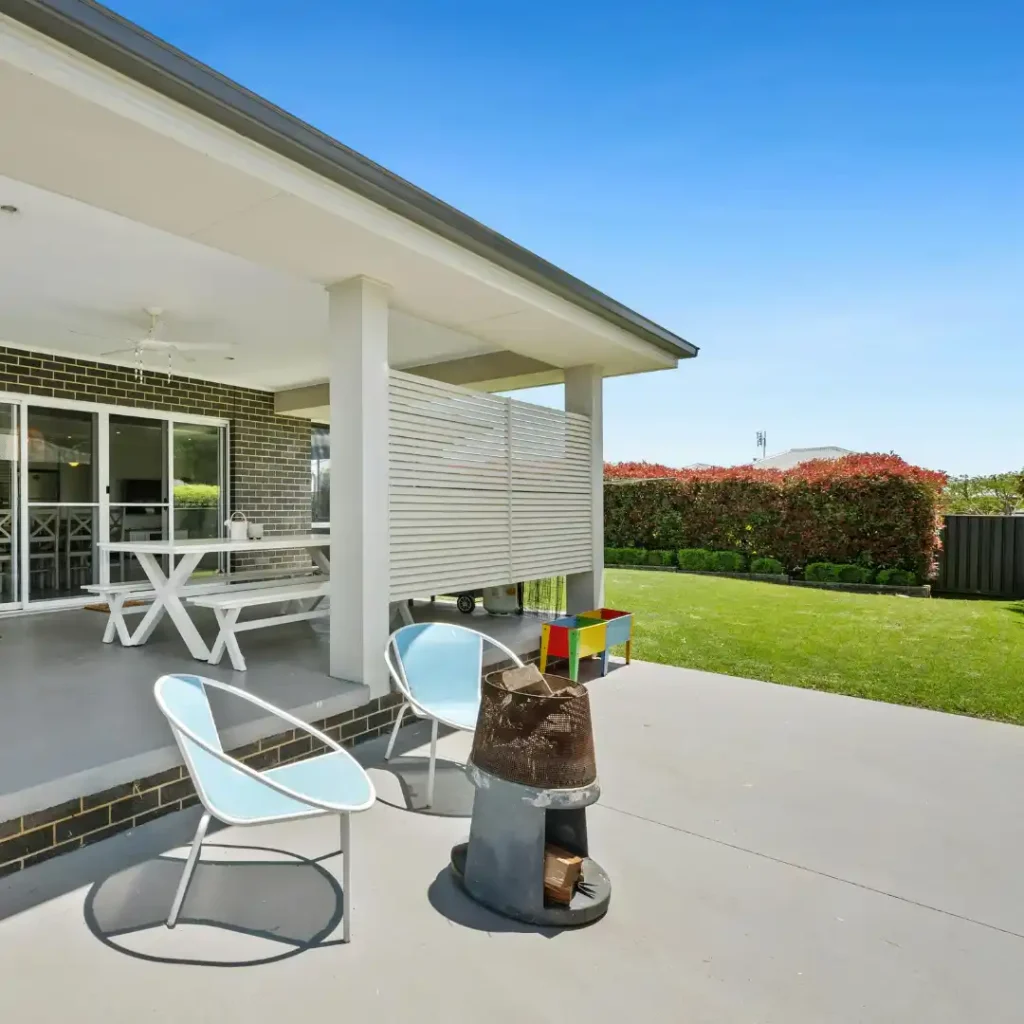

Driveway Concreters Brisbane — project timeline, installation day expectations and post-install care
Driveway Concreters Brisbane should give you a clear timeline and instructions so the finished surface performs well from day one.
Typical project timeline and what to expect:
Quote & site measure — allow a few days for accurate measurement and a written quote.
Site preparation (1–3 days) — clearing, excavation, and sub-base laying and compaction; time depends on site conditions.
Formwork & reinforcement (1 day) — edge forms and mesh/rebar placement.
Pouring day (1 day) — concrete truck delivery and finishing. Expect noise, truck access, and water on site.
Initial set & protection (first 24–72 hours) — surface protection from rain, foot traffic and temperature extremes; curing compounds may be applied.
Curing period (7–28 days) — concrete reaches usable strength quickly but continues to gain strength; light vehicle use usually after 7 days depending on mix and load; full strength may take up to 28 days.
Sealing (usually after curing window) — if sealing is planned, it is often applied after the slab cures to recommended strength.
Post-install care basics:
Avoid heavy loads early — don’t park heavy trailers or trucks on a new slab before it reaches recommended strength.
Curing care — keep the slab slightly damp if specified, or follow the concreter’s curing compound instructions.
Sealing schedule — reseal every 2–3 years for coloured, exposed aggregate, or high-traffic driveways in sunlight-exposed areas.
Routine maintenance — clean oil and chemical spills quickly, inspect joints and small cracks and repair ASAP to prevent water ingress.
Seasonal checks — after heavy storms check for drainage issues, and after hot summer months check for surface crazing or minor shrinkage cracks.
Frequently Asked Questions (FAQs)
A concrete contractor handles everything from site preparation and formwork to pouring, finishing, curing, sealing, and repairs. Common services include concrete driveways, exposed aggregate, stamped concrete patios, house & shed slabs, footpaths, retaining wall footings, driveway resurfacing, and ongoing concrete repair and sealing.
Concrete driveway cost depends on size, finish (plain, exposed aggregate, stamped), site access, base preparation, reinforcement, and drainage. Rather than guess a price, request a site visit or detailed online quote — contractors will give accurate estimates based on these factors.
Exposed aggregate reveals durable pea gravel or stone in the surface for a textured, slip-resistant finish. It’s low maintenance, long-lasting, ideal for Brisbane’s climate, and a popular choice for driveways, paths, and pool surrounds.
A well-installed concrete driveway typically lasts 20–30+ years with proper base prep, reinforcement, sealing, and routine maintenance. Lifespan varies by traffic, soil conditions, drainage, and maintenance.
New concrete generally reaches light-vehicle strength after ~7 days but achieves near-full strength at 28 days. Timing varies with mix, weather, and curing methods — your concrete contractor will provide site-specific guidance.
Stamped concrete is imprinted with patterns (stone, pavers, brick) and can be coloured for decorative patios or driveways. Exposed aggregate exposes natural stone for texture and grip. Choose stamped for decorative looks and exposed aggregate for durability and slip resistance.
Yes — common services include crack repair, patching, overlay/resurfacing, levelling, and resealing. Driveway resurfacing and overlays can restore appearance and function without a full replacement in many cases.
Cracks often come from shrinkage, poor base compaction, inadequate reinforcement, heavy loads, or poor curing. Prevention includes proper site prep, control joints, steel mesh/rebar, correct concrete mix, and careful curing practices.
Sealing protects against stains, weathering, and moisture penetration — important for exposed aggregate, stamped finishes, and driveways. Reseal every 2–3 years for high-traffic areas; frequency depends on finish and exposure.
Key cost drivers: driveway area, chosen finish (plain vs stamped vs exposed aggregate), excavation need, access difficulties, reinforcement, drainage solutions, and any council permit/crossover requirements.
Yes — experienced contractors can match colours and textures using coloured mixes, stains, stamping patterns, or surface treatments like polishing and overlays. Provide photos and samples for best results.
Often a driveway crossover or changes to kerb access require a council permit. Check Brisbane City Council rules before starting — your concrete contractor in Brisbane can usually advise on permit requirements and standard dimensions.
Provide: driveway/patio dimensions, desired finish (exposed aggregate, stamped, plain), photos of the site, information about access and existing surfaces, and any council constraints. Most contractors offer free site inspections or fast online quotes based on detailed info.
